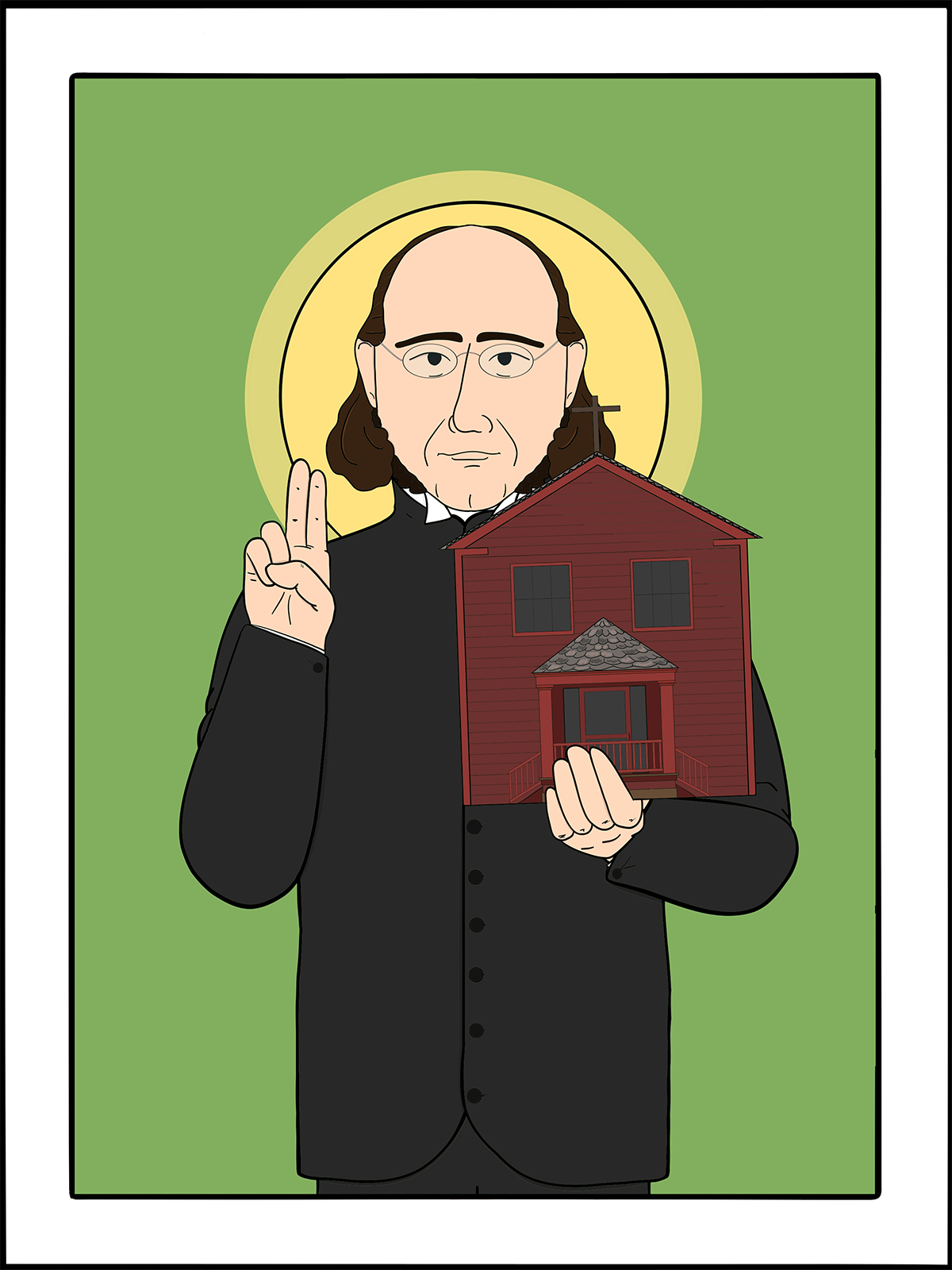
April 2
James Lloyd Breck
Priest, 1876
art by Rev. Kirsten Kohr of Uhrichsville, Ohio O God, who sent your Son to preach peace to those who are far off and to those who are near: call us from comfortable complacency to preach, teach, and plant your church on new frontiers, after the example of your servant James Lloyd Breck; through Jesus Christ our Lord, who lives and reigns with you and the Holy Spirit, one God, for ever and ever. Amen.
James Lloyd Breck was one of the most important missionaries of the Episcopal Church in the nineteenth century. He was called “The Apostle of the Wilderness.”
Breck was born in Philadelphia in 1818, and like many important churchmen of his time, was greatly influenced by the pastoral devotion, liturgical concern, and sacramental emphasis of William Augustus Muhlenberg. Breck attended Muhlenberg’s school in Flushing, New York, before entering the University of Pennsylvania. Muhlenberg inspired him, when he was sixteen years old, to dedicate himself to a missionary life. The dedication was crystallized when Breck, with three other classmates from the General Theological Seminary, founded a religious community at Nashotah, Wisconsin, which in 1844 was on the frontier.
Nashotah became a center of liturgical observance, of pastoral care, and of education. Isolated families were visited, mission stations established, and, probably for the first time since the Revolution, Episcopal missionaries were the first to reach the settlers.
Although Nashotah House flourished, and became one of the seminaries of the Episcopal Church, the “religious house” ideal did not. Breck moved on to St. Paul, Minnesota, where he began the work of the Episcopal Church there. At Gull Lake, he organized St. Columba’s Mission for the Chippewa. Although the mission did not survive, it laid the foundation for work among the Native Americans by their own native priests.
In 1855, Breck married, and in 1858 settled in Faribault, Minnesota, where his mission was associated with one of the first cathedrals established in the Episcopal Church in the United States. He also founded Seabury Divinity School, which later merged with Western Theological Seminary, to become Seabury-Western. In 1867, Breck went on to California, inspired principally by the opportunity of founding a new theological school. His schools in Benicia, California, did not survive, but the five parishes he founded did, and the church in California was strengthened immensely through his work. He died of exhaustion, at the age of 57, in 1876.
Excerpted directly from “Lesser Feasts and Fasts 2022,” p. 168-169.
Lessons and Psalm 1 Corinthians 3:4-11
Psalm 98:1-4
Mark 4:26-32
Preface of Pentecost

